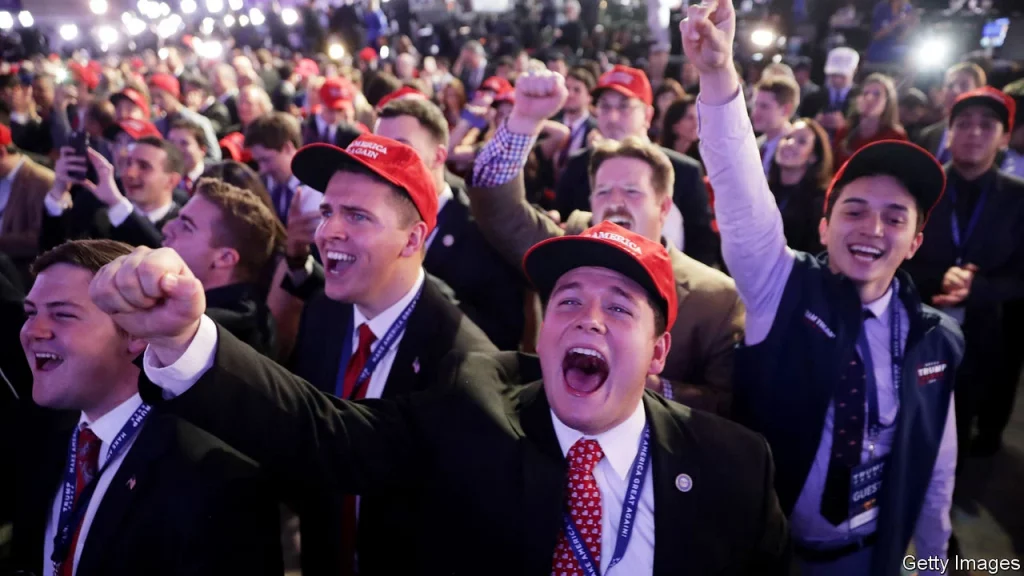Despite a midterm environment so favorable that Republican consultants are (half-jokingly) advising their politicians to “take a long vacation and come back in November,” Republicans from sea to shining sea are waging (and winning!) (but also losing!) a war amongst themselves. That war is a war between the conservatives in the party and, well, the really-whackadoodle-conservatives.
“‘Some people would describe it as conservative, and then far-right conservative,’ said Tom Luna, chair of the [Idaho] state Republican Party. [But] that “far-right” camp ‘would call themselves conservatives and everybody else moderates.’”
Moderate; conservative; really, super-conservative; MAGA; ultra-MAGA; extra-freaking-MAGA…from Idaho to Nerbaska, West Virginia to Pennsylvania, GOP primaries are shaping up to be generational bids to determine the future of Conservatism in the US.
Is your candidate conservative…enough?
Does s/he (they -haha) loudly and proudly support The Big Lie?
Has s/he ever been considered moderate? Ever held office before? Ever worked with Democrats? Ever owned a business? (In some states, believe it or not, Ultra-Super-MAGA conservatives now consider small-scale entrepreneurs “RINOs” and “establishment.”)
One such established Governor facing an aggressive primary challenge from a Trump-endorsed candidate to his right is Brad Little of Idaho. Little, whose candidacy is featured in this excellent piece from Politico, hasn’t spoken out against Trump, hasn’t publicly distanced himself from Trump’s Big Lie, and he even recently signed into Idaho law one of the nation’s most restrictive abortion bans. But, during the pandemic, as Governor, Little allowed local jurisdictions to decide their own masking ordinances, rather than cow to the extreme-anti-vaxx wing of his party and ban masking altogether, so, in Idaho, among the E-F-MAGA conservatives, he’s a “liberal.”
On May 10th two of the nation’s lesser watched, lower stakes primaries were held in deeply conservative Nebraska, and even more-deeply conservative West Virginia. (Trump carried Nebraska by 19 points in 2020, and West Virginia by 39 points.) That morning, The New York Times, published a toss-off post entitled: “What We’re Watching for in the Nebraska and West Virginia Primaries.” Well, what they were watching for was:
1.) Whether Trump or each State’s governor’s endorsement holds more sway (in both states Trump has endorsed against the preference of the sitting (Republican) governor in multiple down-ballot races). – Result: Mixed.
2.) Whether a Trump endorsement will offset credible sexual misconduct allegations against a high-profile candidate (The Trump-endorsed candidate for Nebraska Governor, Charles Herbster, for example). -Result: No.
3.) And whether a “moderate” candidate, like Brett Lindstrom in Nebraska, can convince enough Democrats to change their party affiliation and vote in the Republican primary to eke out a plurality win in a crowded field. (Nearly 8,500 democrats have indeed changed their registered party affiliations since the beginning of April.). -Result: Sadly, nope.
In the end, the May 10th primary results only further highlighted the war within the Republican Party, with Trump’s picks in Nebraska losing, but Trump’s pick in West Virginia winning on a platform of; Trump’s endorsement, vowing to never work with Democrats, election security, the border, blah, blah, blah.
Trump’s losses in Nebraska were significant, however, because other than JD Vance, most of Trump’s endorsements have gone to established Republicans running against little opposition. Nebraska’s gubernatorial primary was an open seat and his House pick was against an incumbent, Don Bacon, whom Trump listed as one of the ‘RHINOs, sellouts, and known losers!’ needing to be voted out of office to ‘Save America.’
The war is still being waged, but, like in any war, (violent or rhetorical), subterfuge is always a smart play. Just ask Pennsylvania’s non-Trump-endorsed candidate for Senate, David McCormick, who is challenging the Trump-endorsed but very boo-able Dr. Oz for Pat Toomey’s vacated Senate seat. McCormick released an ad on Monday attempting to muddy the Trump-approval waters with the voters in his state, highlighting how Trump once vaguely complimented him, and at least twice posed for photos.
Shady, sure. But this is politics. The stakes are high, and, this year, even higher. How will Republican politics be defined by its own electorate? Or, perhaps more to the point, how will the Republican electorate vote to define itself?

